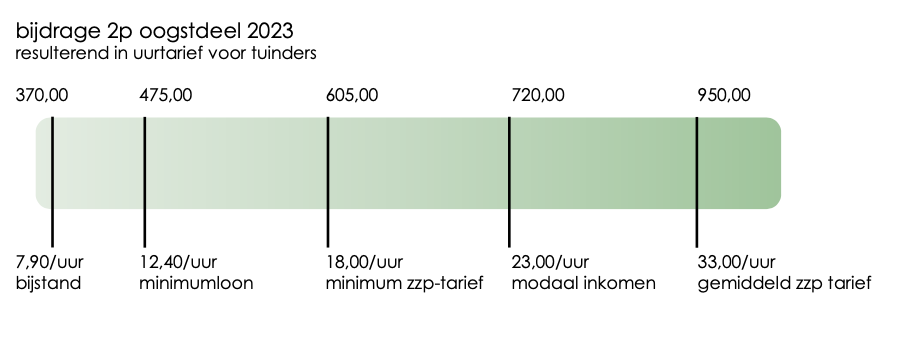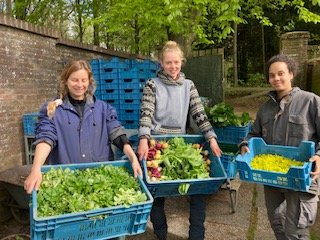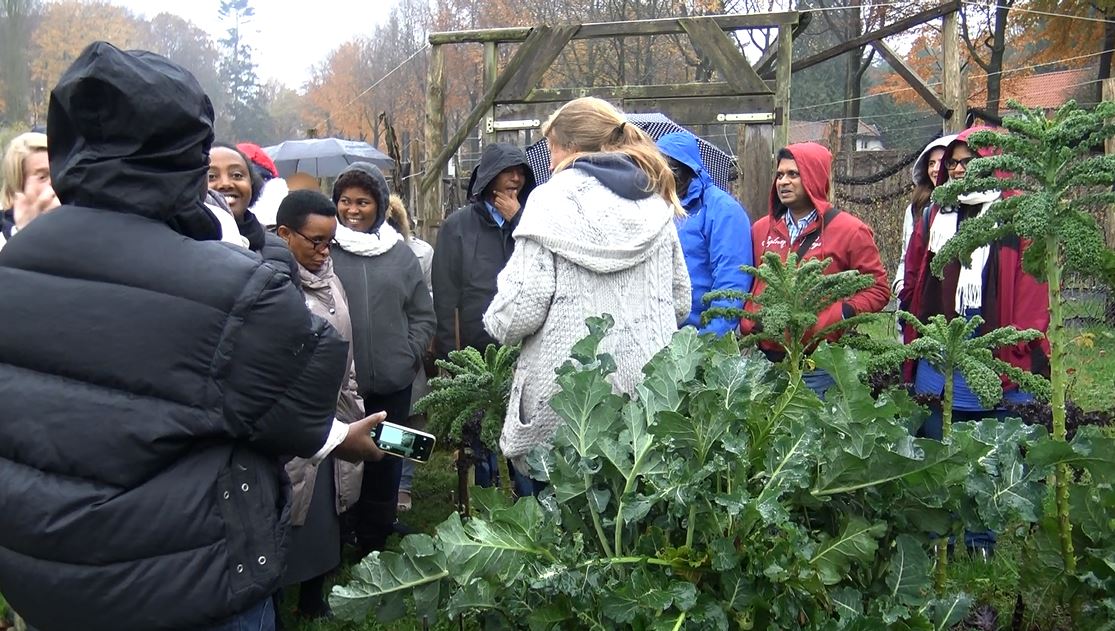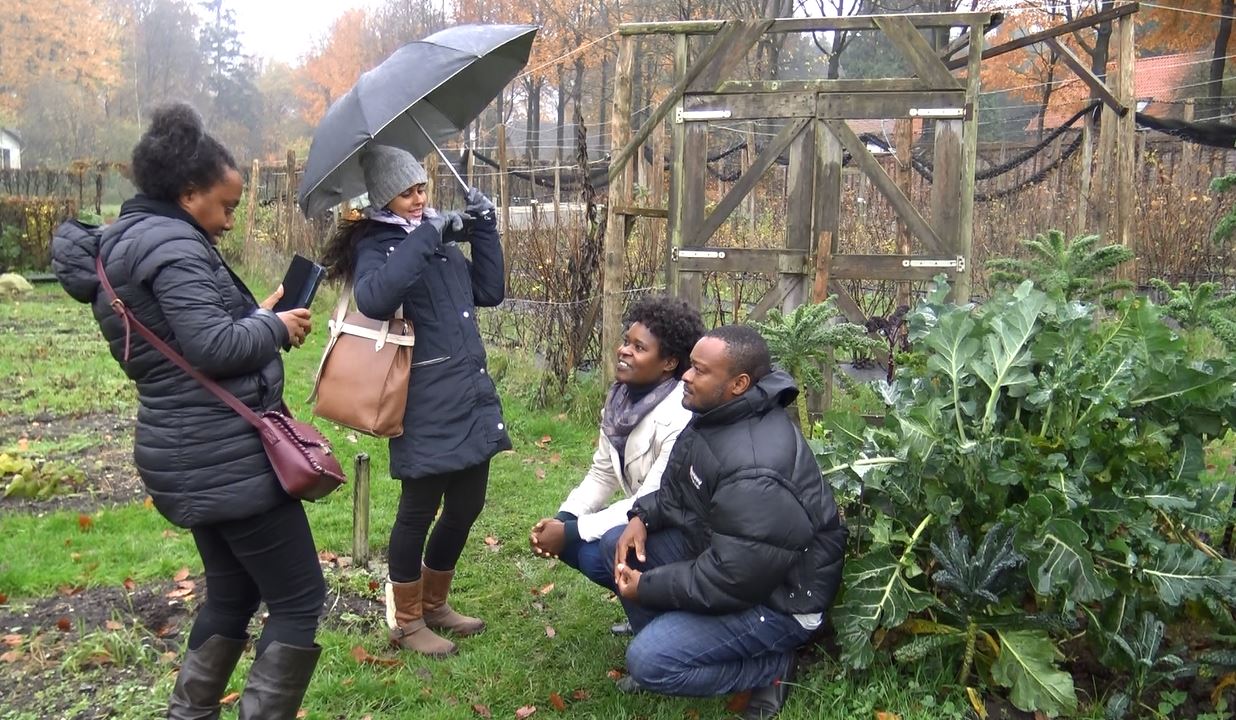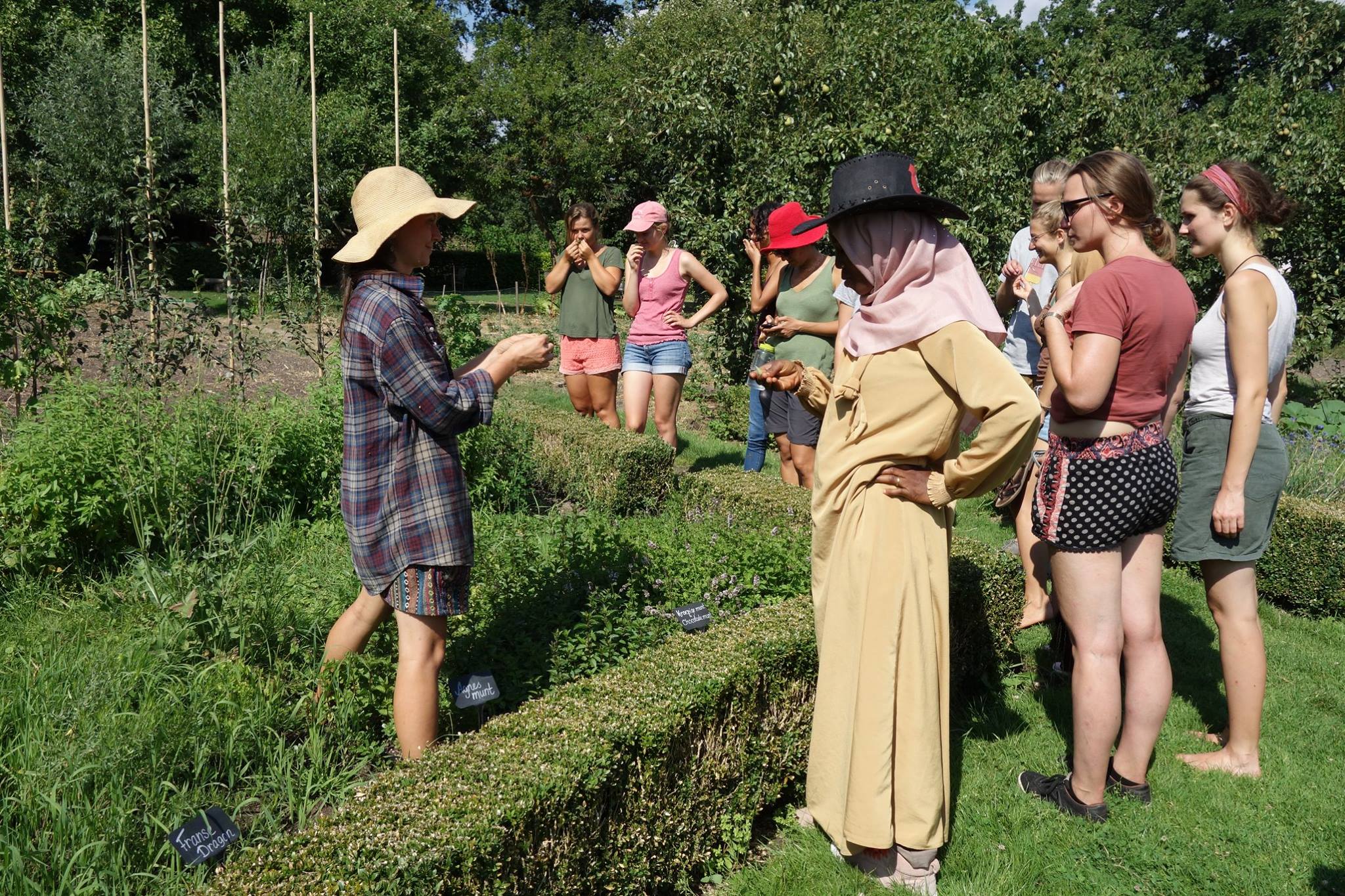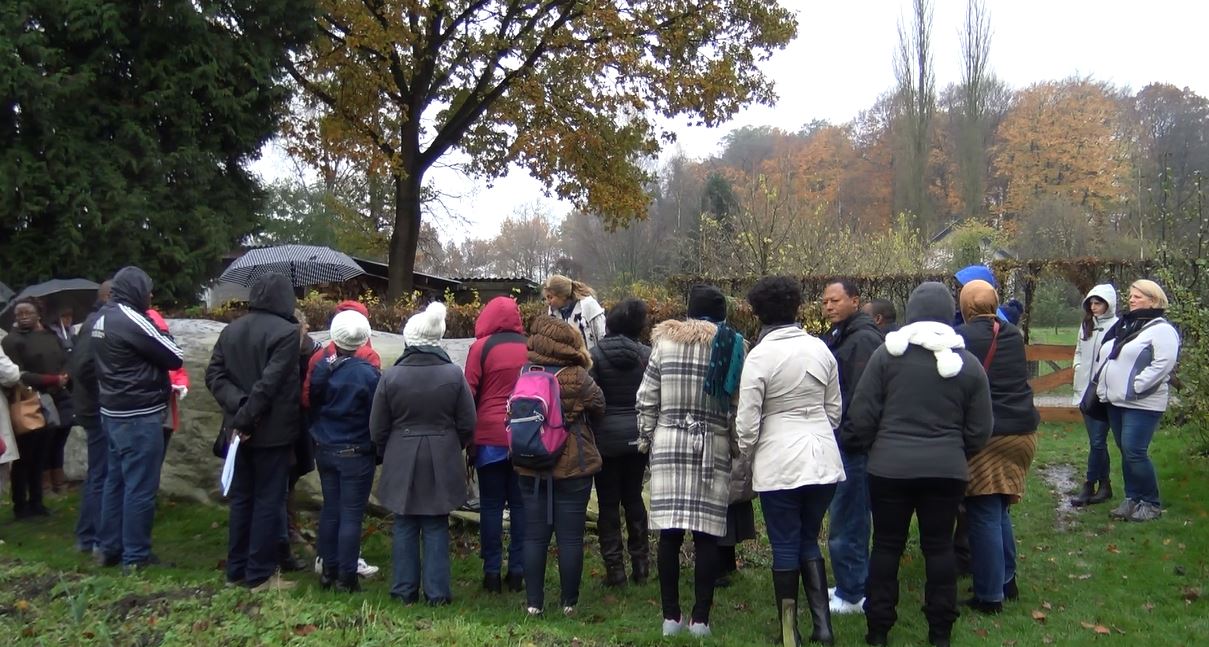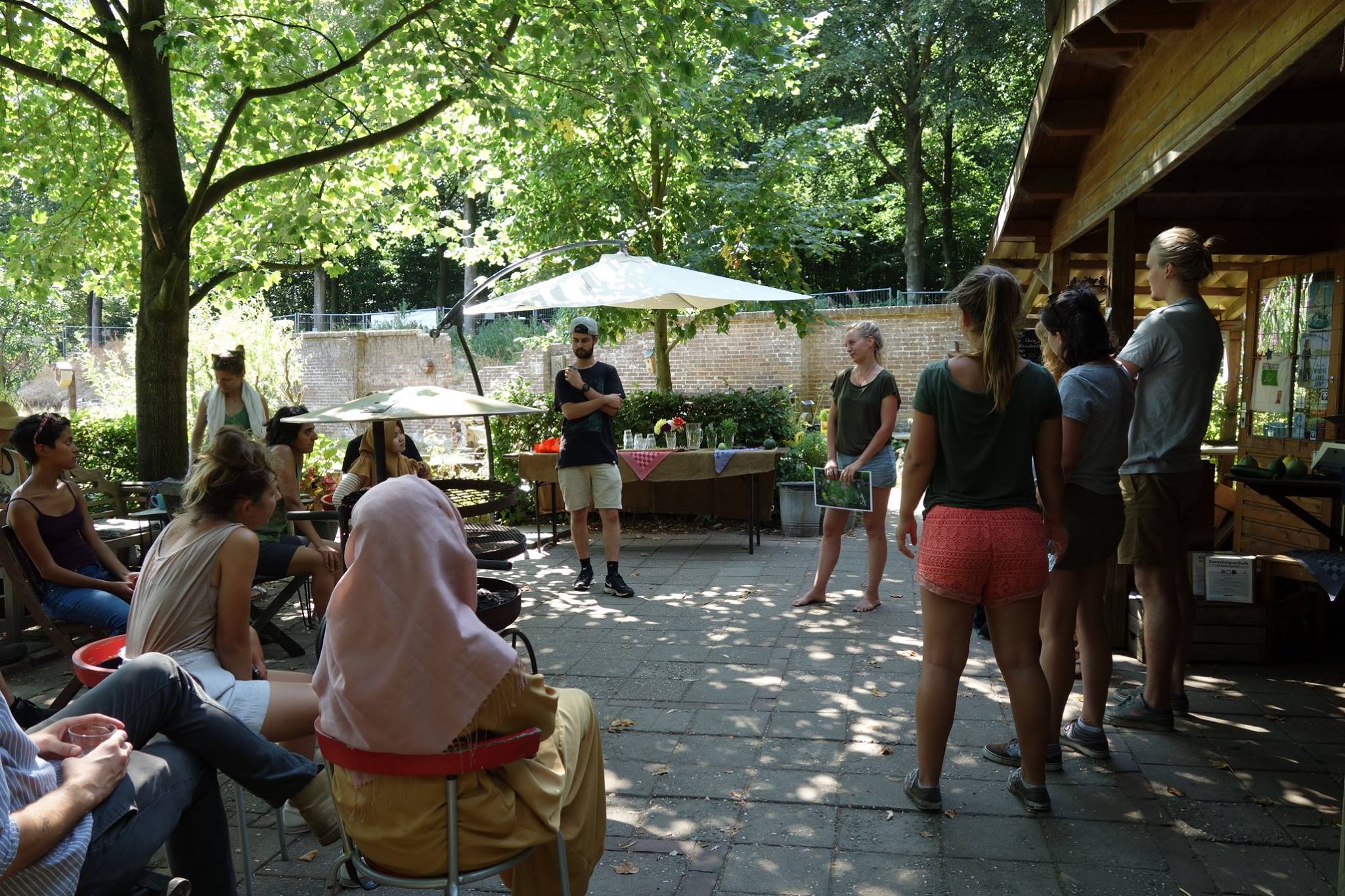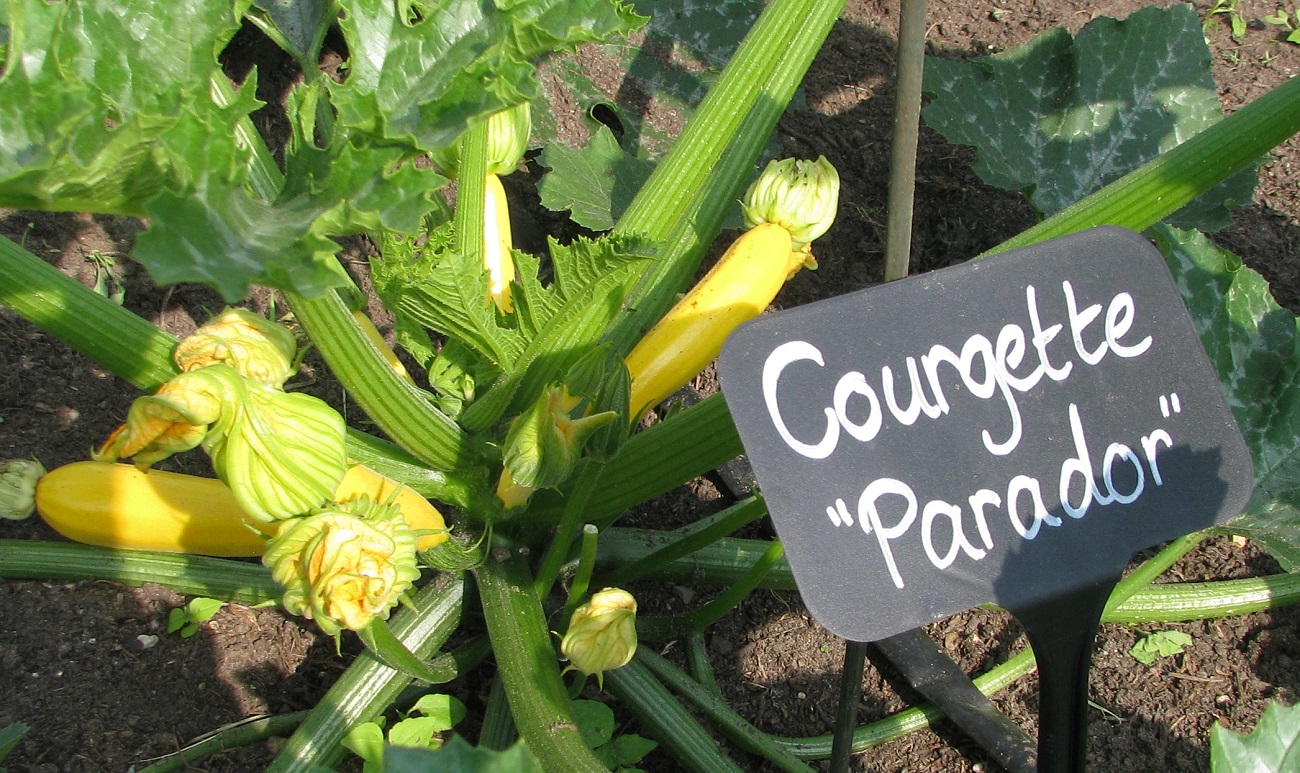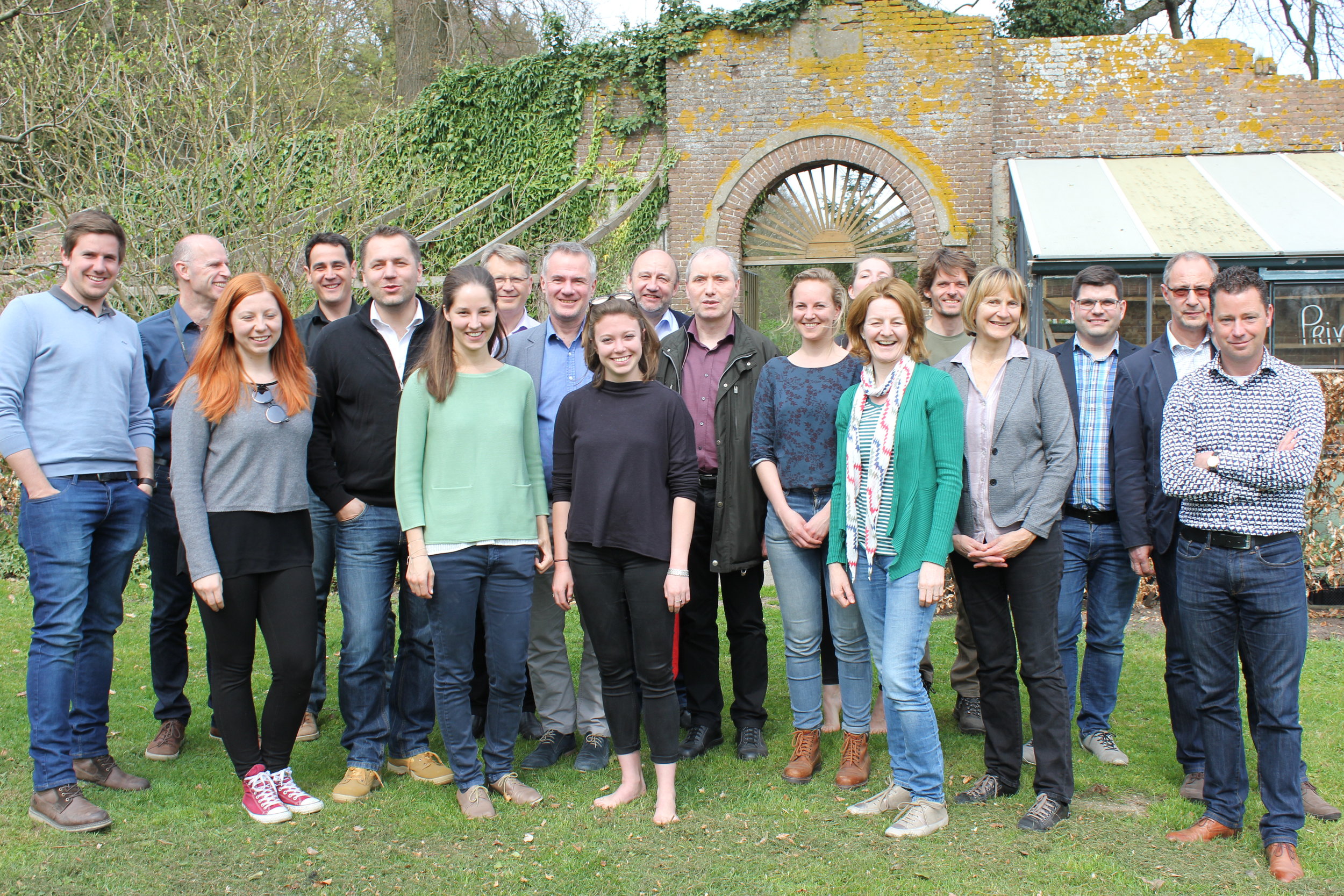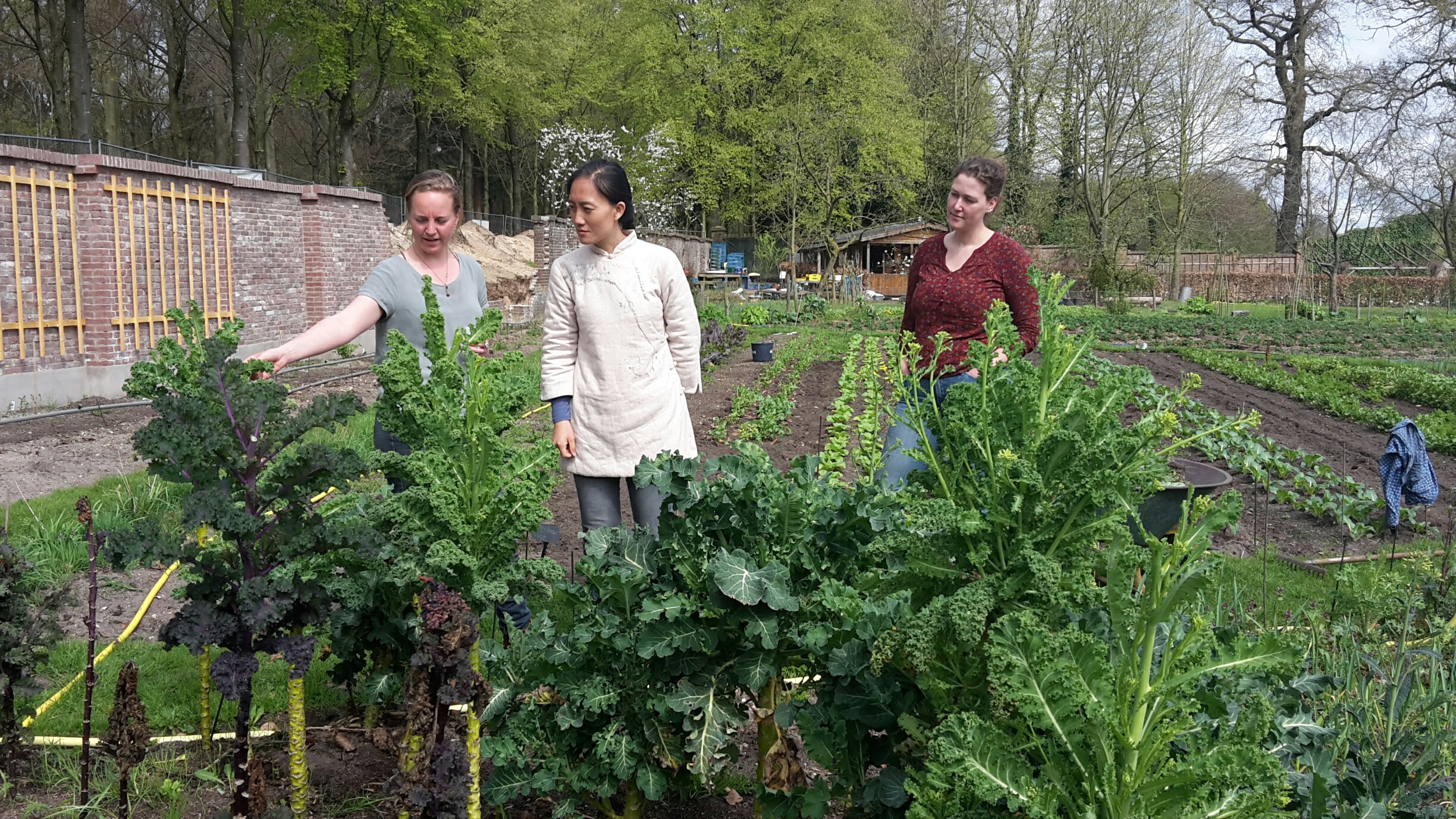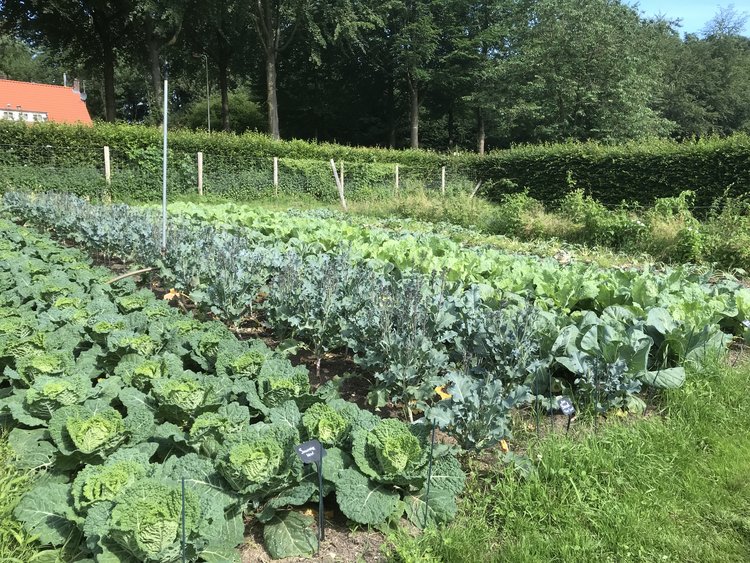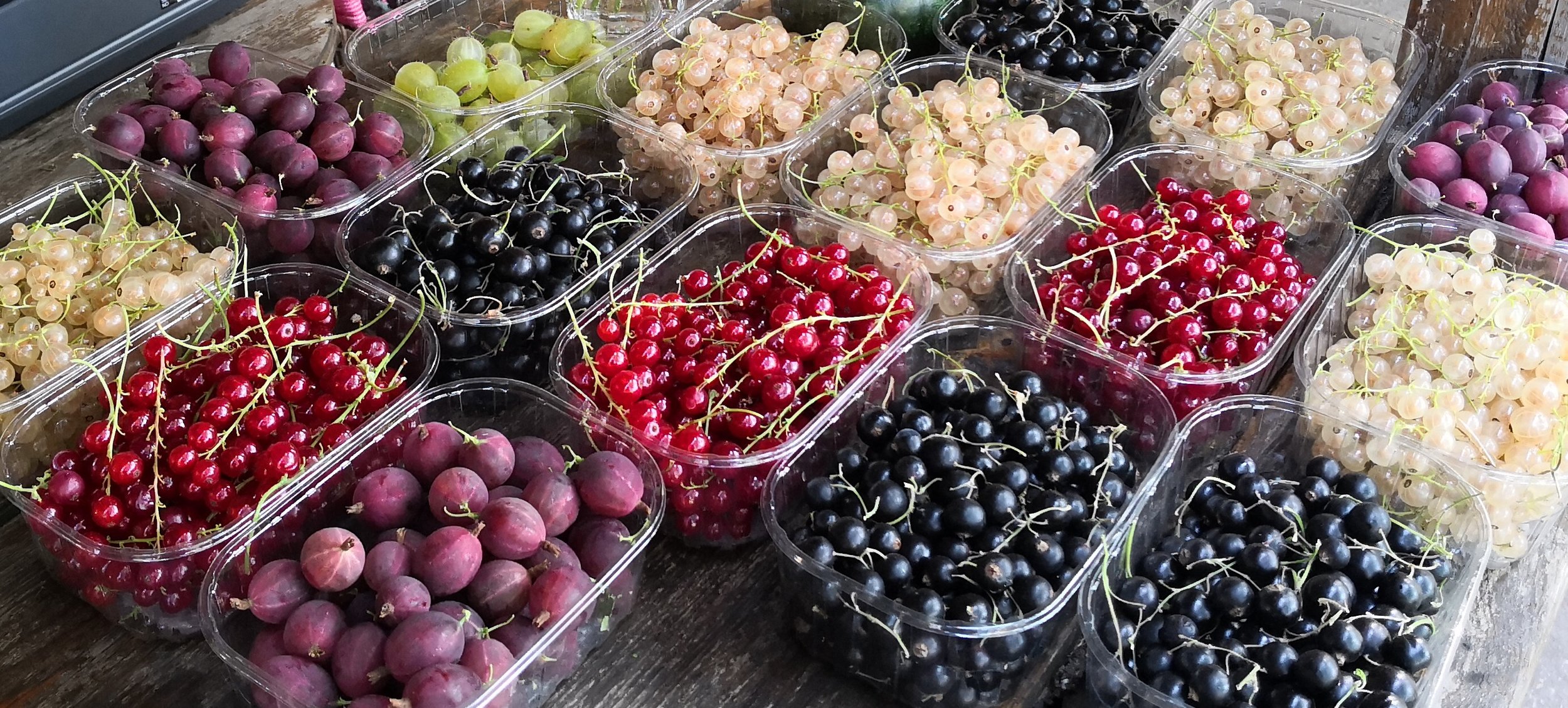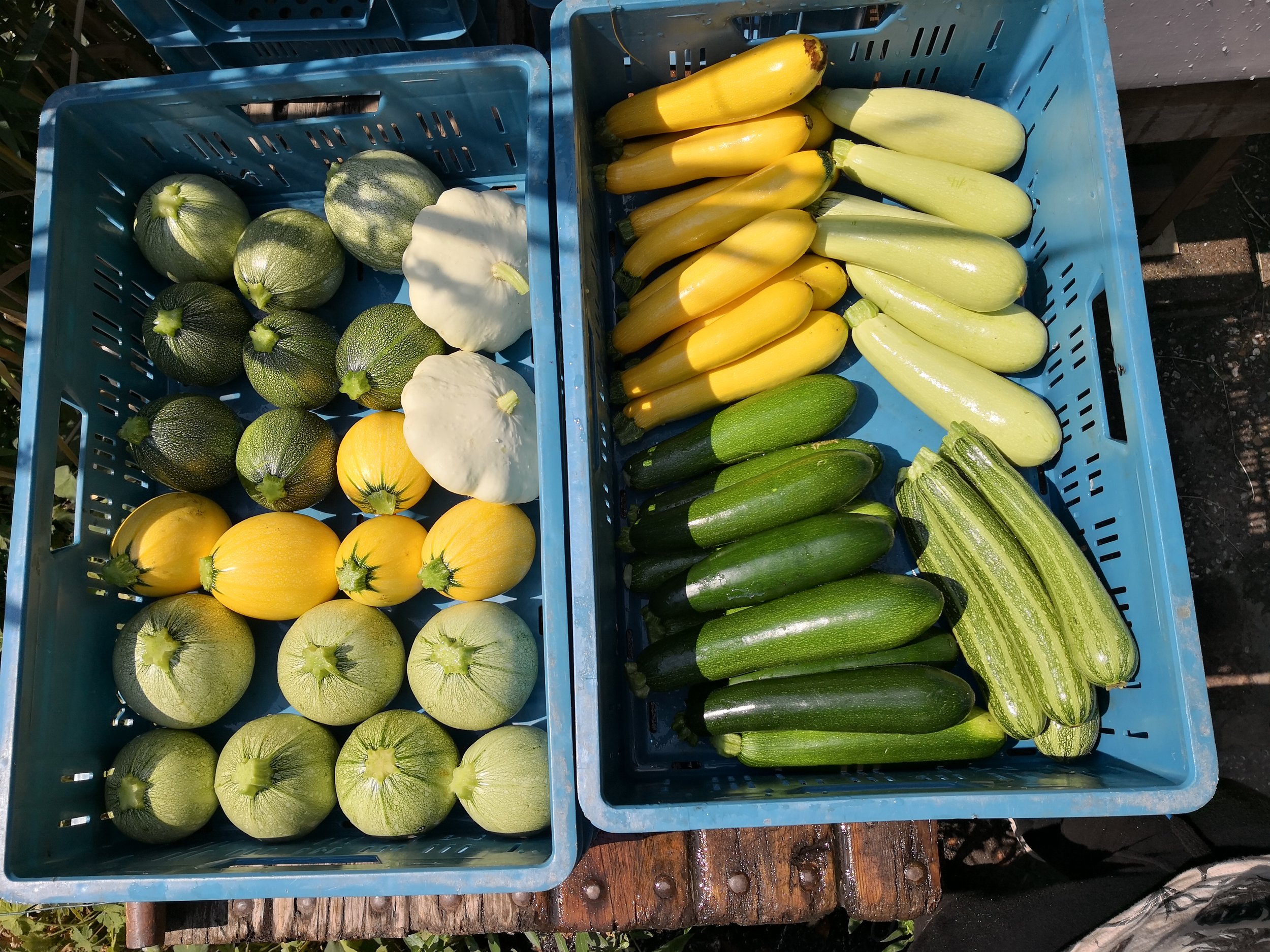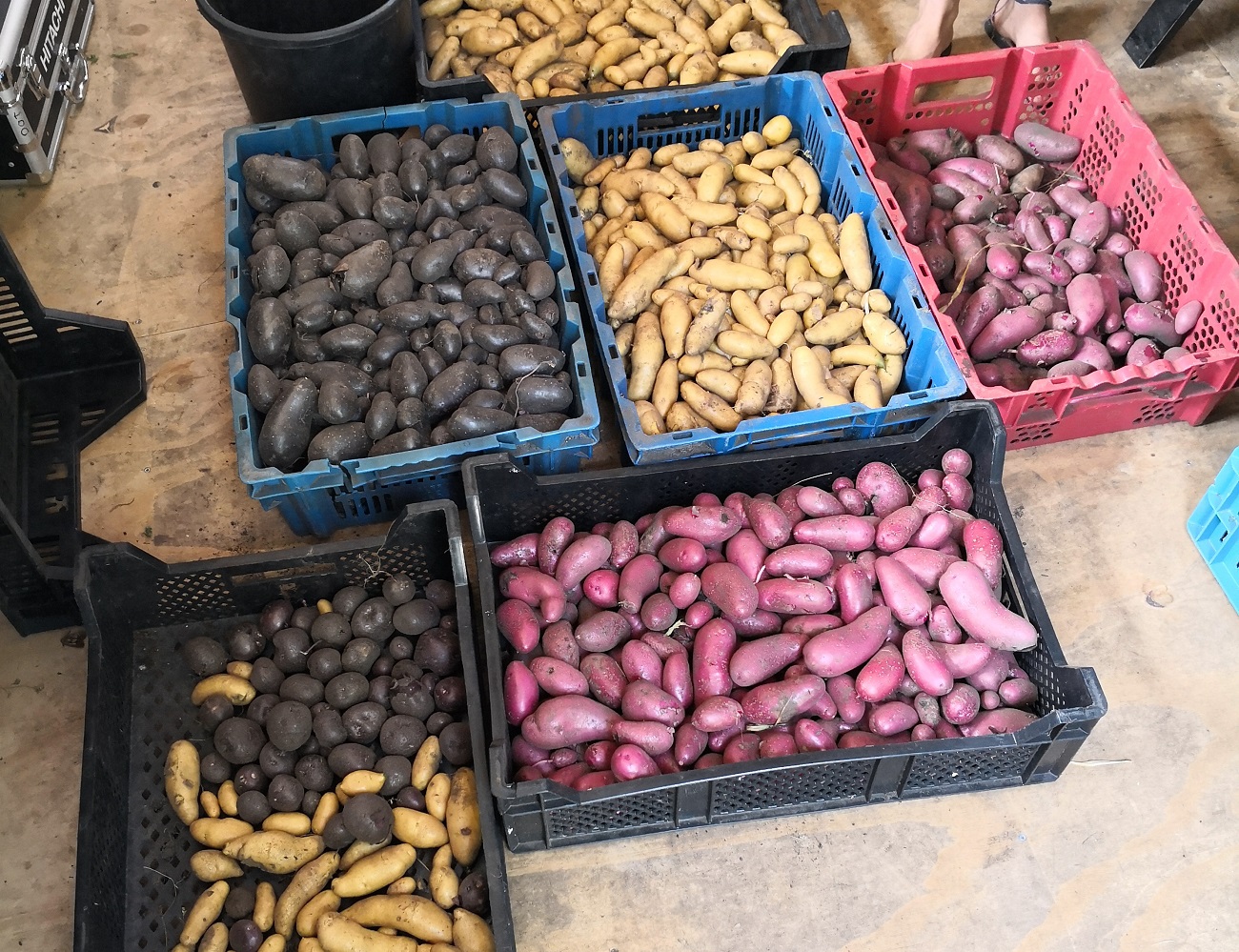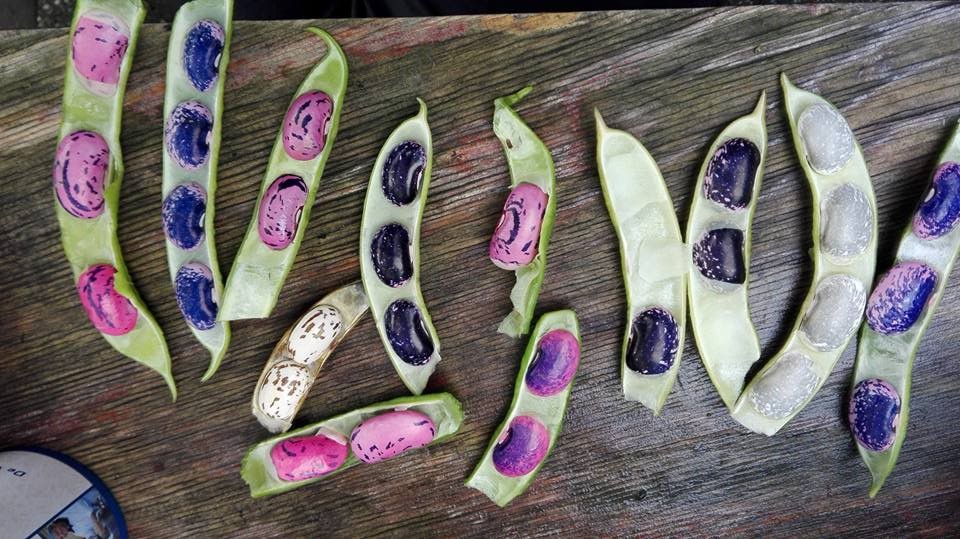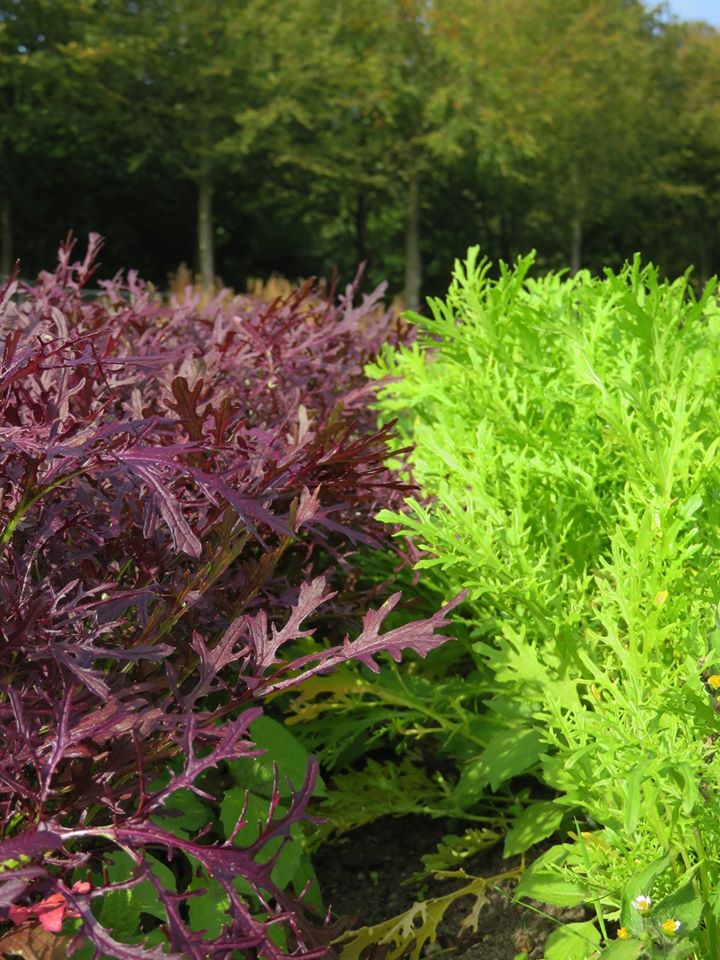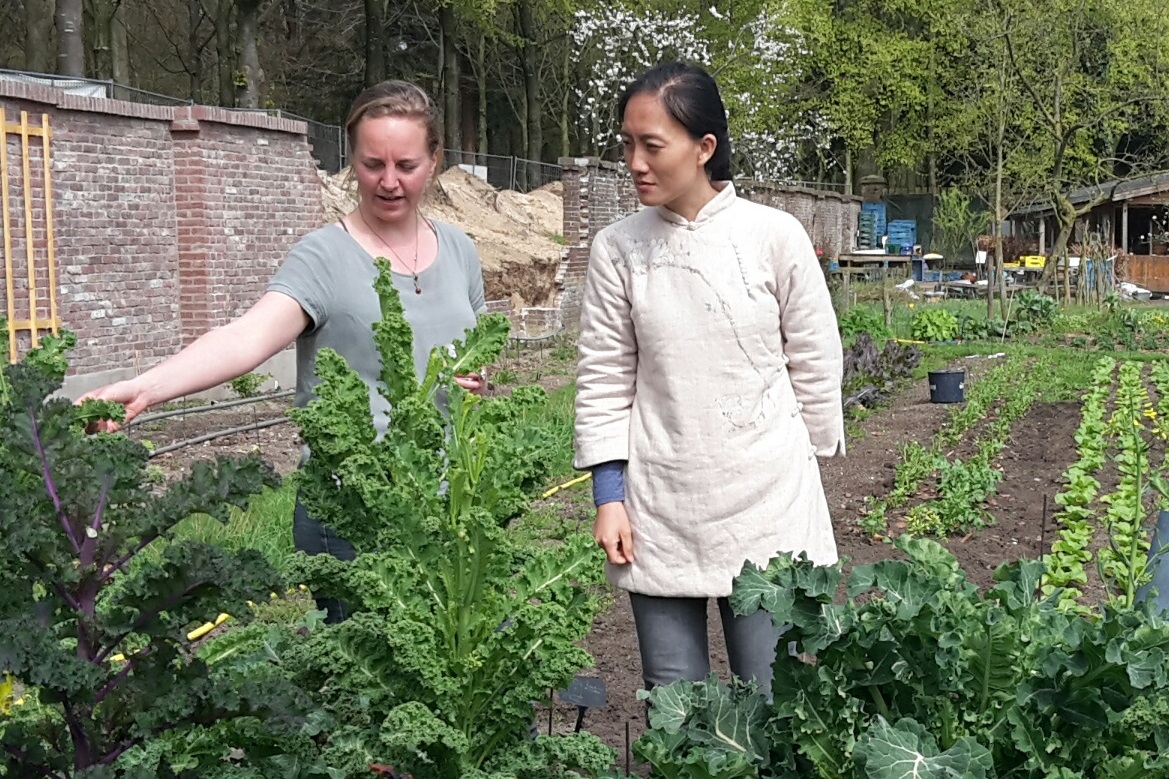Organic CSA garden
De Ommuurde Tuin
De Ommuurde Tuin (‘the Garden within a wall”) is the historical kitchen garden of King Willem III. Nowadays it is a truly beautiful organic marketgarden, owned by Esther Kuiler since 1999. She grows more than 400 varieties of organic vegetables, herbs, tubers, edible flowers and fruits on less than one hectare. The garden is a CSA (Community Supported Agriculture), which stands for a closer connection between consumer and producer. In the Netherlands CSA’s are often ‘pick-your-own gardens’, at De Ommuurde Tuin we choose to work with weekly veggie bags for or members. The membership allows the farmer to invest in seeds, compost, manure, tools etc. as you pay upfront. This is a nicer way to work for the farmer, but it also means we share our harvest. This is a shared risk: we make sure you get a good bag of different seasonal veggies and herbs every week, but a good harvest means you get extra’s, - last year our members were able to get an extra strawberry box each week in june, jum!-, and a tough yield means the veggies might be smaller.
Please read on for more detailed information.
Farmshop and tea terrace
Every Wednesday and Saturday the farmshop and cafe are open. You can enjoy being in the lush garden while having a coffee, piece of cake, soup etc. Or buy your organic vegetables, herbs, fruits and flowers at the farmshop.
The farm shop and terrace are open from April until October, Wednesdays and Saturdays and every first Sunday of the month from 10:00 – 17:00. Besides our seasonal vegetables, herbs, tubers and fruits, you can find plants for your own garden, interesting books, beers, honey, tea, jam, pickles, kimchi and more. Of cours all local and organic.
At the terrace you can enjoy a coffee, (fresh herb) tea, organic cakes, quiches, soups, salads and more. We try to use as many ingredients from the garden as possible and everything else will always be organic.
Would you like to come and have lunch with a big group, please let us know!
Sharing knowledge and teaching others is a big part of our vision. Want to learn more about the garden? Book a guided tour. Would you like to get some hands on experience? We offer qualified internships. Or simply like to be outside in a garden and get your hands dirty? Join the volunteer group!
Looking for a beautiful event space? The garden might be the place to be for your wedding, graduation, lunch meeting, high tea or even special funeral.
Route description
Here you can find the google maps with the location of the garden
Veggy bag (Community Supported Agriculture)
Would you like to have organic, fresh, seasonal veggies and herbs directly from the land? Do you want to get to know more than 60 varieties and nice recipes how to prepare them? Join the garden as shareholder! We are an example of Community Supported Agriculture (CSA), with a direct link between producer & consumer and a shared risk.
Why CSA?
Sinds 1950, we are losing 14 farms every day in the Netherlands - which means that 6 out of 7 farms are gone. The reason is very often not the lack of technologies, bad yields or lack of infrastructure. It is because costs increase (e.g. one hectare of land in the Netherlands costs 80.000 euro's due to speculation of the land), while the price that farmers receive for their products are decreasing more and more - sometimes even below the cost of production. One way to make a living from agriculture, is through a CSA-system, where the farmer can get a fair price instead of losing most of its money to the supermarket.
Price scale: To have a fair income (modaal inkomen 23 euro/h) we ask people to pay what they can so also people with lower income can participate when people with higher income can pay more.
How does it work?
You pay up front, at the start of the season, which makes you ‘a shareholder of the harvest’ throughout the year. As a shareholder, you receive your share through a weekly veggie bag from May until October. You can collect the bag either at the Garden or at pick up points in Wageningen. In total you will receive around 60 varieties of veggies, tubers, herbs and some fruit.
A shared risk.
When we face challenges (e.g. because of drought & heat) you receive a bit less, when the yield is good you'll receive extras. In this way, we - as a community - work together on the continuation of sustainable nature inclusive farming (see also this short video we made at Ommuurde Tuin and this short video from Boerengroep).
The community.
We keep you up to date with a weekly letter and share delicious recipes or ways to preserve the goodies you get in your bag (in Dutch - so it's even a language course ;)). Members are welcome to help us out in the garden. This will give you the opportunity to get an even beter feel for what you eat, learn how to do curtain garden jobs well and be part of a ‘gezellig’ team consisting of the gardeners, interns and volunteers. Please send us a message when you would like to come and help. Another communal aspect of the garden are the events for or shareholders.
Guided tours
Throughout the year, people from all over the world come to visit the Ommuurde Tuin organic garden, to see how a small scale (peasant) garden can give rise to an enormous biodiversity (more than 400 varieties of vegetables, fruits, tubers and herbs, including old varieties), working with nature inclusive agriculture, agroecological principles and special methods to enrich the soil as a basis for growing healthy crops. For more info and reservations, feel free to contact us.
Volunteers & internships
Would you like to complete your (theoretical) study with some hands on experience? Or you simply like to be outside in a garden a bit more? Join the volunteer group! We work with a team of volunteers, including some English speaking students. You’re welcome to join the days and amount of hours that fits your schedule, yet we prefer that they are fixed days, so we can manage the amount of people working per day.
It's also possible to become an intern for one or two full days a week. As an intern the focus is to learn about several concepts, like agroecology, crop rotation, the soil, diseases & prevention, sowing, planting, weeding, harvesting, adding value to products etc. You'll also learn more about the concept of Community Supported Agriculture (CSA) and how to make a living from one hectare vegetable garden. Most interns from WUR in de Ommuurde Tuin conduct their internship with Boerengroep - working in the office 2 or 3 days and in the garden 2 or 3 days a week, combining theory & practice.
Feel free to ask for more info: info@ommuurdetuin.nl
Our working days are:
April – November: Monday – Saturday (between 8:00 – 17:00
October – March: Monday – Wednesday (between 9:00 – 16:00
Farm Experience Internhip (FEI) course at Wageningen University
De Ommuurde Tuin is one of the host farms for the Farm Experience Internship, a 3 ECTS summer course at Wageningen University that bridges the gap between science and practice. Students can follow a 2 week internship at Ommuurde Tuin. Teresa and Christina made a nice video from their experience in 2020
Yearly Master Class: Agroecology in practice - generating an income as a peasant with Community Supported Agriculture
This one week masterclass is designed for students, PhD’ers and people in general who want to learn about agroecology in practice. Whether you actually want to start a garden/farm yourself or if you want to start projects with peasants in the Netherlands or abroad - this course will provide you with the practical knowledge you need. Click on the picture above for more or go to ommuurdetuin.nl/course
Last year we couldn’t organise this masterclass. We are looking into a possibility in the autumn.
Esther Kuiler (the owner of Ommuurde Tuin, left) and Elske (right)
Peasant-to-peasant knowledge sharing. CSA pioneer Shi Yan from China visits the Ommuurde Tuin.
Elske wrote a booklet called Fair Wage - solidarity payment and other peasant initiatives (in Dutch). The booklet can be ordered at toekomstboeren.nl/eerlijkloon
This concept of ‘Solidarity Payment’ (where shareholders can decide the farmers’ gross salary, as described above) is developed by Elske Hageraats at Ommuurde Tuin in the winter 2020. Elske: “Our vegetable bags are now for free - I don’t want to earn any money on the product. I just want the costs - that come with sustainable production - covered, and a fair income: at least a minimum wage.” A recent study shows that most CSA farmers earn below the minimum wage. According to Rekenkamer, about half of the Dutch farmers have in income below the minimum income standard, when subsidies are not taken into account (with subsidies included it is still 1/3rd of the farmers who are below the minimum). In order to make sure that (peasant) farmers can have at least a minimum wage, this concept was developed. The payment is in:
1) solidarity to the peasant farmer and the workers: the producers can earn a minimum wage - which should be a right to all people. It means the farmer has money to pay extra people to work on the farm, so (s)he doesn’t have to work 70 hours a week. It means access to insurance and building up retirement.
2) solidarity to the people: since everyone can pay based upon their own income, organic food will be available to everyone. You can pay us 1 euro or 100 euro’s an hour - it’s all up to you.
3) solidarity to the future generations, since they can keep on making a living from working the land
4) solidarity to the earth, nature, lifestock since a fair price makes it possible to produce in a truely sustainable and fair way. Society as a whole covers the costs.
For more information about Solidarity Payment, you can contact Elske via elske.hageraats(at)gmail.com Are you interested to work along on this topic, e.g. by writing an article about it, work along on the translation or maybe you have another good idea, feel free to contact us!


